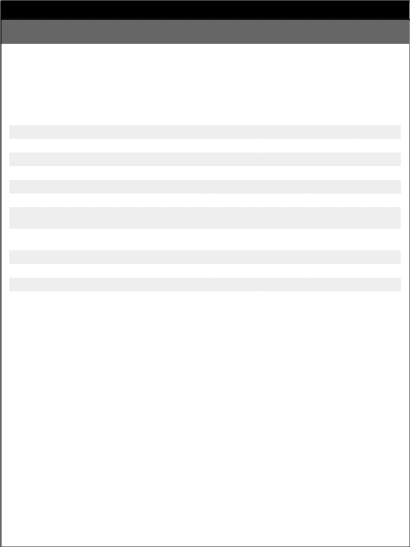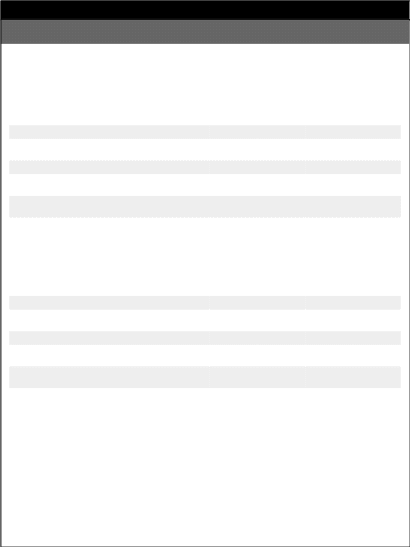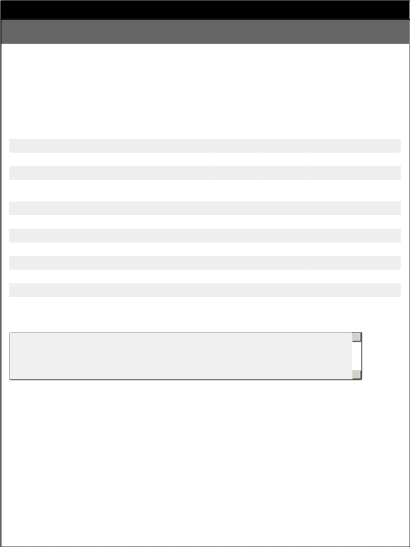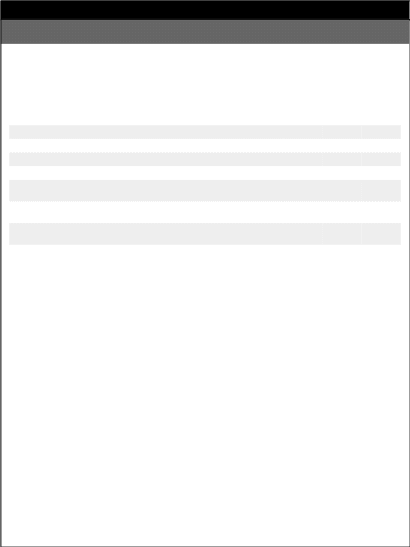Outcome Survey for NIST Summer Institute for Middle School Science Teachers
NIST Generic Clearance for Program Evaluation Data Collections
0693-0033-NIST-SI-PostSurveyFor-Non-participants-2022
Outcome Survey for NIST Summer Institute for Middle School Science Teachers
OMB: 0693-0033
 NIST
Summer
Institute:
Post-survey
for
Non-participants
[insert school
year]
NIST
Summer
Institute:
Post-survey
for
Non-participants
[insert school
year]
Please take the time to complete this survey on your experience as a teacher during the current school year. Your feedback is truly valuable to the administrators of the NIST Summer Institute program and the data will be kept strictly confidential. Data will be used solely for the overall evaluation of the program and program improvement purposes.
The survey should take 20 minutes to complete.
If you have any questions, please contact Kara Robinson at NIST. She can be reached by phone at (301) 9752471 or by email at [email protected].
OMB Control No. 06930033
Expiration Date: 07/31/2022
NOTE: This collection of information contains Paperwork Reduction Act (PRA) requirements approved by the Office of Management and Budget (OMB). A Federal agency may not conduct or sponsor, and a person is not required to respond to, nor shall a person be subject to a penalty for failure to comply with an information collection subject to the requirements of the Paperwork Reduction Act of 1995 unless the information collection has a currently valid OMB Control Number. The approved OMB Control Number for this information collection is 0693-0033. Without this approval, we could not conduct this survey/information collection. Public reporting for this information collection is estimated to be approximately 20 minutes per response, including the time for reviewing instructions, searching existing data sources, gathering and maintaining the data needed, and completing and reviewing the information collection. All responses to this information collection are voluntary. Send comments regarding this burden estimate or any other aspect of this information collection, including suggestions for reducing this burden to the National Institute of Standards and Technology at 100 Bureau Dr Gaithersburg, MD 20899 Attn: Kara Robinson, [email protected], 301-975-2471.
NIST Summer Institute: Post-survey for Non-participants
Teacher Consent Form
As part of the evaluation of the NIST Summer Institute, NIST is conducting this survey to document the teaching practices and beliefs of program applicants.
Participation in this activity is voluntary, but the information gained from the survey will be of great value to NIST as it refines its program to best meet the needs of middle school science teachers. Information collected through the survey will be strictly confidential and used solely for research purposes. Only aggregate findings will be included in the final report. No findings will be connected to individual teachers. The information collected will not be shared with other school personnel or used as part of a performance evaluation.
1. If you agree to participate in the survey, please check the following box and complete the survey.
fec
I have read the information on this screen and understand what my participation involves. I consent to participating in the survey as part

of the NIST evaluation.


NIST Summer Institute: Post-survey for Non-participants |
|
|
--------------------------------- |
||
|
||
2. Please enter your ID number in the space below (your ID number can be found in the email with the link to this survey).
ID Number: |
|
|
NIST Summer Institute: Post-survey for Non-participants
3. In what grade did you spend the majority of your time teaching science during the current school year? (Select one.)
mlj
6th grade
mlj
7th grade
mlj
8th grade
4. If you taught science to more than one grade during the current school year, select all
additional grades that apply.
fec
6th grade
fec
7th grade
fec
8th grade
 fec
fec
I did not teach science to any additional grades
 NIST
Summer
Institute:
Post-survey
for
Non-participants
NIST
Summer
Institute:
Post-survey
for
Non-participants
5. Which subject areas did you cover in your science classes during the current school
year? (Mark one response on each line.)
-
Subject covered
Subject not covered
a. Biology
nmlkj
nmlkj
b. Earth Science
mlj
mlj
c. Space Science
nmlkj
nmlkj
d. Physics
mlj
mlj
e. Chemistry
nmlkj
nmlkj
f. Weather
mlj
mlj
g. Metrology*
nmlkj
nmlkj
*Metrology: is the science of measurement, embracing both experimental and theoretical determinations at any level of uncertainty in any field of science and technology. Scientific or fundamental metrology concerns the establishment of quantity systems, unit systems, units of measurement, the development of new measurement methods, realization of measurement standards and the transfer of traceability from these standards to users in society. Applied or industrial metrology concerns the application of measurement science to manufacturing and other processes and their use in society, ensuring the suitability of measurement instruments, their calibration and quality control of measurements. Legal metrology concerns regulatory requirements of measurements and measuring instruments for the protection of health, public safety, the environment, enabling
taxation, protection of consumers and fair trade.
 NIST
Summer
Institute:
Post-survey
for
Non-participants
NIST
Summer
Institute:
Post-survey
for
Non-participants
6. How prepared are you to link scientific concepts to realworld applications for each of
the subject areas listed below. (Mark one response on each line.)
-
Not prepared
Somewhat prepared
Moderately prepared
Very well prepared
a. Biology
nmlkj
nmlkj
nmlkj
nmlkj
b. Earth Science
mlj
mlj
mlj
mlj
c. Space Science
nmlkj
nmlkj
nmlkj
nmlkj
d. Physics
mlj
mlj
mlj
mlj
e. Chemistry
nmlkj
nmlkj
nmlkj
nmlkj
f. Weather
mlj
mlj
mlj
mlj
g. Metrology*
nmlkj
nmlkj
nmlkj
nmlkj
*Metrology: is the science of measurement, embracing both experimental and theoretical determinations at any level of uncertainty in any field of science and technology. Scientific or fundamental metrology concerns the establishment of quantity systems, unit systems, units of measurement, the development of new measurement methods, realization of measurement standards and the transfer of traceability from these standards to users in society. Applied or industrial metrology concerns the application of measurement science to manufacturing and other processes and their use in society, ensuring the suitability of measurement instruments, their calibration and quality control of measurements. Legal metrology concerns regulatory requirements of measurements and measuring instruments for the protection of health, public safety, the environment, enabling
taxation, protection of consumers and fair trade.
NIST Summer Institute: Post-survey for Non-participants
7. How important are each of the following teaching practices to you as a science teacher.
(Mark one response on each line.)
Not Important
Somewhat
Important
Moderately
Important
Very Important
a. Using realworld examples to introduce science concepts nmlkj nmlkj nmlkj nmlkj b. Using realworld examples to motivate student interest in science mlj mlj mlj mlj c. Connecting new science concepts to previous science concepts nmlkj nmlkj nmlkj nmlkj d. Creating analogies for scientific concepts mlj mlj mlj mlj e. Addressing students’ misconceptions nmlkj nmlkj nmlkj nmlkj
f. Having students collect data mlj mlj mlj mlj
g. Providing direct instruction to help students understand a scientific concept
h. Asking students to compare the results of an experiment to their original predictions
nmlkj nmlkj nmlkj nmlkj
mlj mlj mlj mlj

i. Asking students to explain their conclusions and/or reasoning nmlkj nmlkj nmlkj nmlkj j. Increasing student interest in science careers mlj mlj mlj mlj k. Increasing student interest in the role of science in everyday life nmlkj nmlkj nmlkj nmlkj
NIST Summer Institute: Post-survey for Non-participants
8. What is your level of preparedness to use the following teaching practices in your
classroom. (Mark one response on each line.)
Not prepared
Somewhat
prepared
Moderately
prepared
Very well
prepared
a. Using realworld examples to introduce science concepts nmlkj nmlkj nmlkj nmlkj b. Using realworld examples to motivate student interest in science mlj mlj mlj mlj c. Connecting new science concepts to previous science concepts nmlkj nmlkj nmlkj nmlkj d. Creating analogies for scientific concepts mlj mlj mlj mlj e. Addressing students’ misconceptions nmlkj nmlkj nmlkj nmlkj
f. Having students collect data mlj mlj mlj mlj
g. Providing direct instruction to help students understand a scientific concept
h. Asking students to compare the results of an experiment to their original predictions
nmlkj nmlkj nmlkj nmlkj
mlj mlj mlj mlj

i. Asking students to explain their conclusions and/or reasoning nmlkj nmlkj nmlkj nmlkj j. Increasing student interest in science careers mlj mlj mlj mlj k. Increasing student interest in the role of science in everyday life nmlkj nmlkj nmlkj nmlkj
 NIST
Summer
Institute:
Post-survey
for
Non-participants
NIST
Summer
Institute:
Post-survey
for
Non-participants
9. Approximately how often did you have students engage in the following learning
activities during the current school year? (Mark one response on each line.)
-
Weekly
Monthly
Annually
Never
a. Conduct investigations (e.g., doing lab activities or using manipulatives)
nmlkj
nmlkj
nmlkj
nmlkj
b. Consider a realworld problem relevant to the course and develop a plan to address it
mlj
mlj
mlj
mlj
c. Use technical passages (from news or science journals) to investigate current issues or new developments in science or technology
nmlkj
nmlkj
nmlkj
nmlkj
d. Listen to guest speakers
mlj
mlj
mlj
mlj
e. Go on field trips relevant to the curriculum
nmlkj
nmlkj
nmlkj
nmlkj
f. Investigate possible career opportunities in mathematics, science, or technology
mlj
mlj
mlj
mlj
g. Design and implement their own scientific investigation
nmlkj
nmlkj
nmlkj
nmlkj
h. Use “stateoftheart” equipment or technologies
mlj
mlj
mlj
mlj
NIST Summer Institute: Post-survey for Non-participants
10. Consider only science teachers within your school: How often did you do the
following with them during the current school year? (Mark one response on each line.)
12 times a week
12 times a
month
12 times a year Never
a. Discuss general ideas for how to teach specific science concepts nmlkj nmlkj nmlkj nmlkj
b. Share a specific science lesson that was very effective for teaching a concept
mlj mlj mlj mlj
c. Share strategies for making science accessible to all students nmlkj nmlkj nmlkj nmlkj
d. Have my classroom observed by other science teachers to demonstrate how to teach a specific science lesson, activity, or concept
e. Demonstrate a specific science lesson, activity, or concept for students in another teacher’s classroom
mlj mlj mlj mlj
nmlkj nmlkj nmlkj nmlkj
11. Consider only science teachers outside your school: How often did you do the
following with them during the current school year? (Mark one response on each line.)
12 times a week
12 times a
month
12 times a year Never
a. Discuss general ideas for how to teach specific science concepts nmlkj nmlkj nmlkj nmlkj
b. Share a specific science lesson that was very effective for teaching a concept
mlj mlj mlj mlj
c. Share strategies for making science accessible to all students nmlkj nmlkj nmlkj nmlkj

d. Have my classroom observed by other science teachers to demonstrate how to teach a specific science lesson, activity, or concept
e. Demonstrate a specific science lesson, activity, or concept for students in another teacher’s classroom
mlj mlj mlj mlj nmlkj nmlkj nmlkj nmlkj
NIST Summer Institute: Post-survey for Non-participants
12. When you had a science-content question related to your teaching responsibilities
during the current school year, how often did you use the following information sources to obtain answers? (Mark one response on each line.)
12 times a week
12 times a
month
12 times a year Never
a. A teaching colleague within my middle school nmlkj nmlkj nmlkj nmlkj
b. A teaching colleague at another middle school mlj mlj mlj mlj
c. A science supervisor from within my school district nmlkj nmlkj nmlkj nmlkj
d. Someone from a professional science teaching organization (e.g., NSTA)
mlj mlj mlj mlj
 e.
A
professional
scientist
of
my
acquaintance
(e.g.,
a
former
professor)
nmlkj
nmlkj
nmlkj
nmlkj
f.
My
school
district’s
science
website
mlj
mlj
mlj
mlj
g.
My
state’s
science
website
nmlkj
nmlkj
nmlkj
nmlkj
h.
A
targeted
Google
search
mlj
mlj
mlj
mlj
i.
A
federal
agency
website
(e.g.,
NSF,
NASA,
NOAA,
NIST)
nmlkj
nmlkj
nmlkj
nmlkj
j.
Specific
science
websites
(e.g.,
Why
Files,
Exploratorium)
mlj
mlj
mlj
mlj
k.
Other
nmlkj
nmlkj
nmlkj
nmlkj
e.
A
professional
scientist
of
my
acquaintance
(e.g.,
a
former
professor)
nmlkj
nmlkj
nmlkj
nmlkj
f.
My
school
district’s
science
website
mlj
mlj
mlj
mlj
g.
My
state’s
science
website
nmlkj
nmlkj
nmlkj
nmlkj
h.
A
targeted
Google
search
mlj
mlj
mlj
mlj
i.
A
federal
agency
website
(e.g.,
NSF,
NASA,
NOAA,
NIST)
nmlkj
nmlkj
nmlkj
nmlkj
j.
Specific
science
websites
(e.g.,
Why
Files,
Exploratorium)
mlj
mlj
mlj
mlj
k.
Other
nmlkj
nmlkj
nmlkj
nmlkj
13. If you selected "Other" in Question 12, please specify the "Other" information source(s)
in the space below:
5
6
NIST Summer Institute: Post-survey for Non-participants
14. Indicate the extent to which you agree or disagree with each of the following
statements for the current school year. (Mark one response on each line.)
Strongly
Disagree
Disagree Agree
Strongly
Agree
a. The quality of my teaching influences my students’ interest in science nmlkj nmlkj nmlkj nmlkj b. The quality of my teaching influences my students’ achievement in science mlj mlj mlj mlj c. I continually find better ways to teach science nmlkj nmlkj nmlkj nmlkj
d. I know how to motivate my students to learn science mlj mlj mlj mlj

e. I influence the quality of science instruction for students outside of my own classroom
f. I am currently in a position to influence the number of my students that know about sciencerelated careers.
g. I am currently in a position to influence the number of my students that find STEM
subjects interesting.
h. I am currently in a position to influence the number of my students that view science as being relevant to their lives.
nmlkj nmlkj nmlkj nmlkj mlj mlj mlj mlj nmlkj nmlkj nmlkj nmlkj mlj mlj mlj mlj
 NIST
Summer
Institute:
Post-survey
for
Non-participants
NIST
Summer
Institute:
Post-survey
for
Non-participants
------------------------------------------------------------------------------------------------------
If you are not finished with the survey, select the "Previous" button to navigate the survey and complete your responses.
If you are ready to submit your survey now, select the "Done" button. After you submit, you will NOT be able to reenter the survey.
| File Type | application/vnd.openxmlformats-officedocument.wordprocessingml.document |
| Author | Yonder, Darla |
| File Modified | 0000-00-00 |
| File Created | 2022-08-01 |
© 2026 OMB.report | Privacy Policy